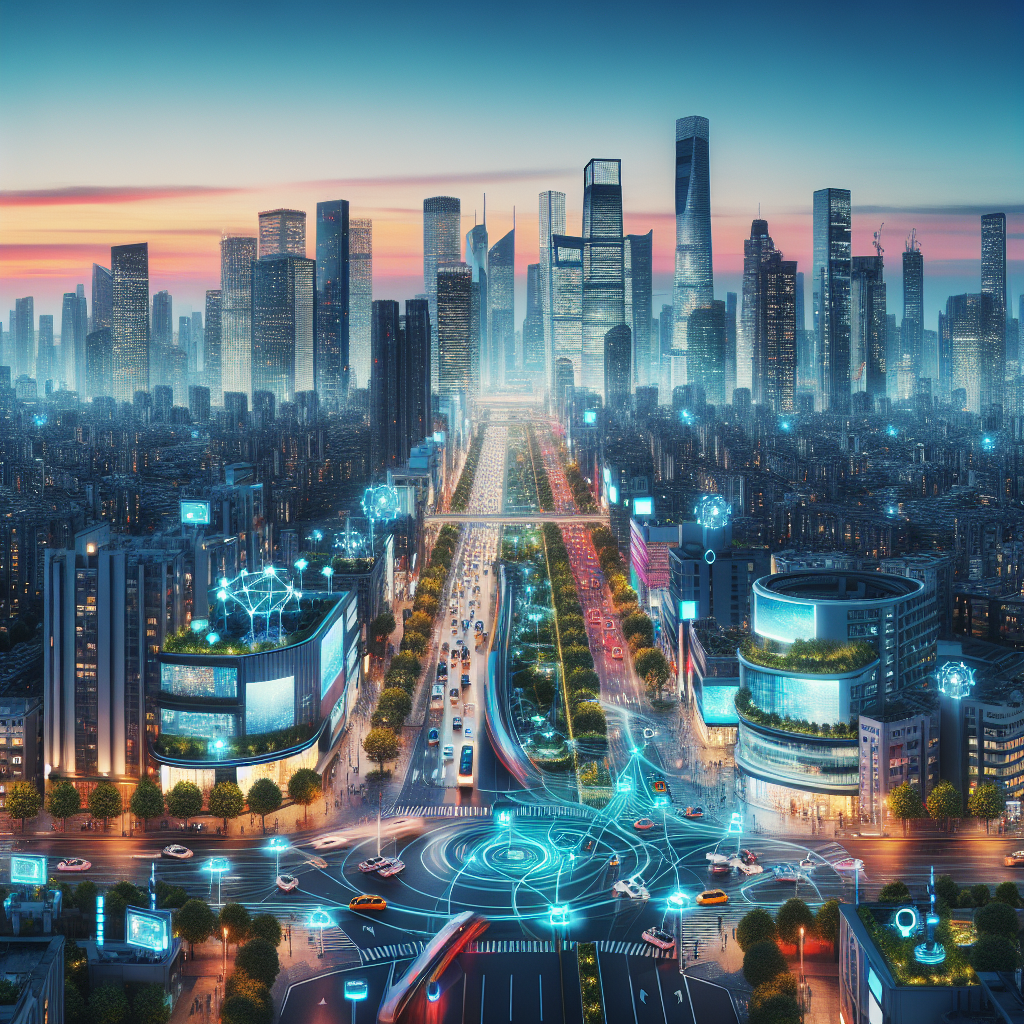Artificial Intelligence (AI) Integration in Smart Cities: Improving Urban Living
In recent years, the concept of smart cities has gained significant traction as urban areas around the world look for innovative solutions to improve efficiency, sustainability, and quality of life for their residents. One of the key technologies driving this transformation is artificial intelligence (AI), which is being used to power a wide range of applications that make cities smarter, more connected, and more responsive to the needs of their citizens.
AI integration in smart cities involves the use of machine learning algorithms, data analytics, and other advanced technologies to collect, analyze, and interpret vast amounts of data from various sources in order to make more informed decisions and optimize city operations. This can lead to improvements in areas such as transportation, energy, public safety, healthcare, and more, ultimately creating a more livable and sustainable urban environment.
One of the most common applications of AI in smart cities is in the area of transportation. By using AI-powered traffic management systems, cities can optimize traffic flow, reduce congestion, and improve safety on the roads. For example, AI algorithms can analyze real-time traffic data from sensors and cameras to adjust traffic signal timings, reroute vehicles, and provide real-time traffic updates to drivers. This not only helps to reduce travel times and emissions but also enhances overall road safety.
AI is also being used to improve public safety in smart cities. By analyzing data from various sources such as surveillance cameras, social media, and emergency calls, AI algorithms can help law enforcement agencies predict and prevent crime, respond to emergencies more quickly, and allocate resources more effectively. For example, predictive policing models can identify high-risk areas and times for crime, allowing police departments to deploy officers proactively to deter criminal activity.
In the area of healthcare, AI integration in smart cities is revolutionizing the way healthcare services are delivered to residents. By leveraging AI-powered telemedicine platforms, cities can provide remote access to healthcare providers, monitor patient health data in real-time, and even predict disease outbreaks based on trends in health data. This not only improves access to healthcare for residents but also helps to reduce healthcare costs and improve overall public health outcomes.
Energy efficiency is another key area where AI is making a significant impact in smart cities. By using AI algorithms to analyze energy consumption data from buildings, streetlights, and other infrastructure, cities can identify opportunities to reduce energy waste, optimize energy usage, and lower carbon emissions. For example, smart buildings equipped with AI-powered energy management systems can automatically adjust heating, cooling, and lighting settings to maximize energy efficiency while maintaining comfort for occupants.
Overall, AI integration in smart cities is helping to transform urban living by making cities more efficient, sustainable, and responsive to the needs of their residents. By harnessing the power of AI to analyze data, make predictions, and automate processes, cities are able to improve the quality of life for their citizens while also reducing costs and environmental impact.
FAQs:
Q: What are some examples of AI applications in smart cities?
A: Some examples of AI applications in smart cities include traffic management systems, predictive policing models, telemedicine platforms, and energy management systems.
Q: How does AI improve public safety in smart cities?
A: AI helps improve public safety in smart cities by analyzing data from various sources to predict and prevent crime, respond to emergencies more quickly, and allocate resources more effectively.
Q: How does AI help improve energy efficiency in smart cities?
A: AI helps improve energy efficiency in smart cities by analyzing energy consumption data to identify opportunities to reduce energy waste, optimize energy usage, and lower carbon emissions.
Q: What are the benefits of AI integration in smart cities?
A: The benefits of AI integration in smart cities include improved efficiency, sustainability, and quality of life for residents, as well as cost savings and reduced environmental impact.
Q: Are there any challenges to implementing AI in smart cities?
A: Some challenges to implementing AI in smart cities include concerns about data privacy and security, the need for adequate infrastructure and resources, and potential biases in AI algorithms.

